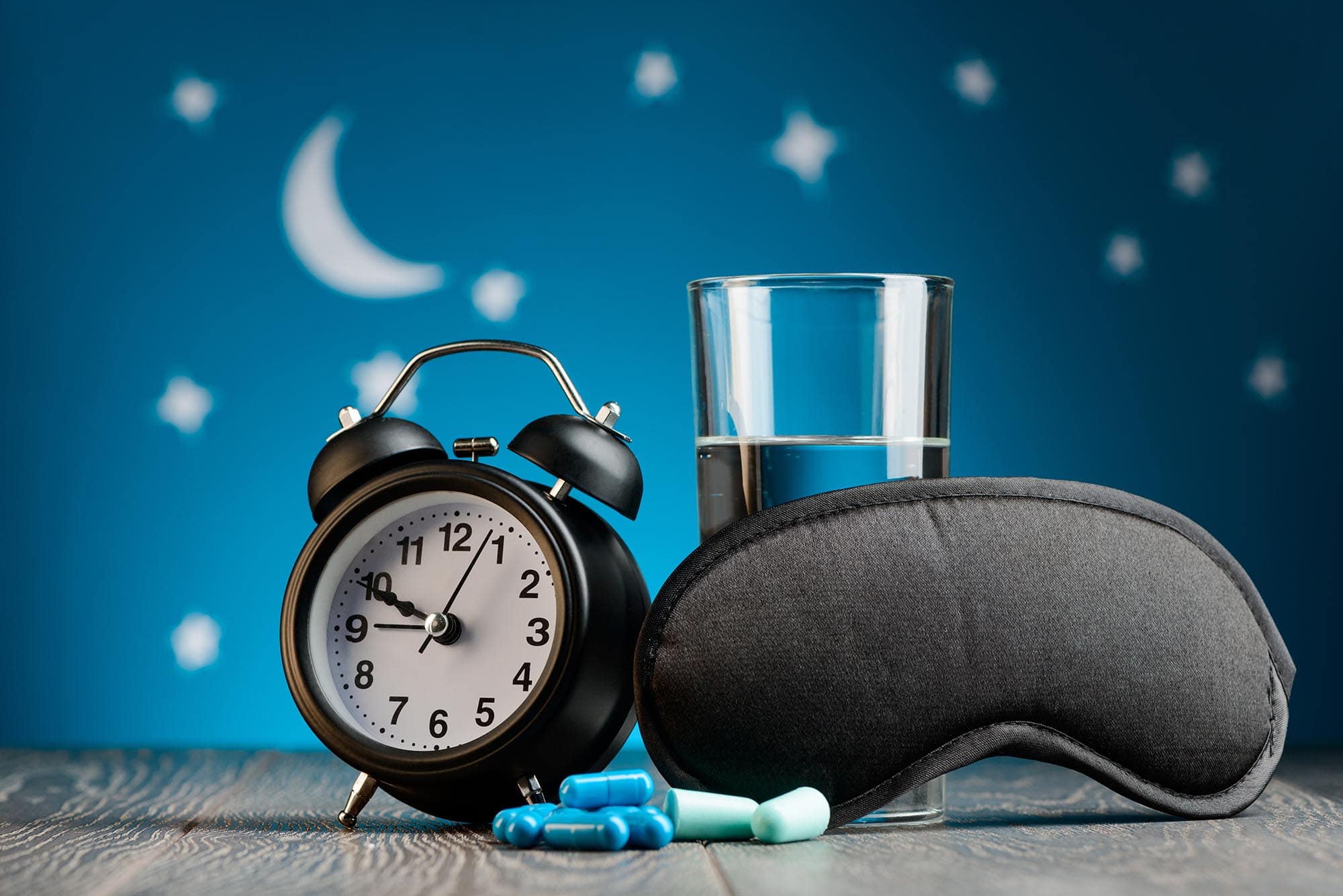Sleep hygiene: Is it important?
Sleep hygiene refers to a healthy routine sleep habit that helps one sleep throughout the night or get enough quality sleep. These habits are the cornerstone of cognitive behavioural therapy, the most effective long-term treatment for people with chronic insomnia.
There are certain habits that should be cultivated if you are experiencing poor sleeping habits before you opt to take medication or any remedies. You should consider practising good sleeping hygiene, such as going to bed at the same time every night and being consistent with it. Make sure the bedroom is quiet, dark, relaxing, and at a comfortable temperature. Remove electronic devices, such as TVs, computers, and smartphones, from the bedroom. Avoid large, heavy meals, caffeine, and alcohol before bedtime. Regular exercise during the day is able to make one fall asleep easily at night.

How can all these habits help you get good-quality sleep? (3)
Behaviour during the day and before bedtime has a major impact on sleep. Either it can promote healthy sleep or contribute to sleeplessness.
The daily routines that include what we consume, the medication that we take, how we schedule our days, and how we spend our evenings can significantly affect the quality of sleep. Sometimes, for a person who is experiencing trouble sleeping, it takes only a slight adjustment in their daily routines, or in some cases, they are required to write a two-week diary to help them understand their routines that affect their sleep quality.
Why is good-quality sleep important? (3,4)
Insufficient sleep has major health consequences for adults, adolescents, and young children. Strong evidence found that adults who have insufficient sleep develop numerous health complications, including an increased incidence of chronic disease. Those who have short sleep duration (less than 7 hours per night) and poor sleep quality are associated with cardiovascular morbidity and metabolic disorders such as glucose intolerance, which will also lead to obesity, diabetes, heart disease, and hypertension. Individuals who experience shorter sleep duration are at 1.48 times greater risk of developing and dying of coronary heart disease than those who have sufficient sleep, and they are 1.15 times more likely to have a stroke.
Adults who sleep less than 7 hours per night also have greater difficulty concentrating, remembering, and performing daily activities than those who sleep 7 to 9 hours per night.
When it comes to children, those who experience shorter sleep durations are more likely to become obese than those who do not. Insufficient sleep also affects immunologic function and the development of mood disorders and is associated with depression, deficits in cognition, memory, and learning, and reduced quality of life.
One major consequence of insufficient sleep is daytime sleepiness, which reduces alertness and causes slow reaction times, leading to occupational and medical errors, workplace injuries, impaired driving, and motor vehicle accidents. In 2009, almost 5% of adults in 12 states reported that during the previous 30 days they had nodded off or fallen asleep while driving. In 2005, drowsy driving contributed to 100,000 motor vehicle accidents and 15,000 deaths.

What needs to be done? (4)
As medical practitioners such as doctors, nurses, pharmacists, nutritionists, etc., one must consider the sleeping factor when advising lifestyle modification. One must also ensure that patients or customers are well informed regarding the medication or supplement that they are taking, which will induce symptoms that hinder them from sleeping, such as tachycardia (irregular heart rate), etc. Thus, they need to adjust the timing of medication consumption, sleeping time, and daily activities. One must also consider the sleep factor in finding the diagnosis or underlying cause of one’s health condition.
At this point, the public must be reminded that sleep is an essential factor in maintaining health, especially for diseases like hypertension. There are various factors that can hinder sleep or cause trouble sleeping, so adjustments in lifestyle sometimes need to be made for the improvement of life quality.
References
-
Centre for Disease Control and Prevention (CDC). Tips for better sleep (2016). https://www.cdc.gov/sleep/about_sleep/sleep_hygiene.html (Accessed on September 4, 2020).
-
American Academy of Sleep Medicine (AASM). Healthy Sleep Habits (2017). http://sleepeducation.org/essentials-in-sleep/healthy-sleep-habits (Accessed on September 4, 2020).
-
Sleep Foundation. Nilong Vyas. Sleep Hygiene (2020). https://www.sleepfoundation.org/articles/sleep-hygiene (Accessed on September, 2020).
-
Irish, L.A., et al. (2015). The Role of Sleeping Hygiene in Promoting Public Health: A Review of Empirical Evidence. Sleep Medicine Reviews. Volume 22, Pages 23-36. https://doi.org/10.1016/j.smrv.2014.10.001




